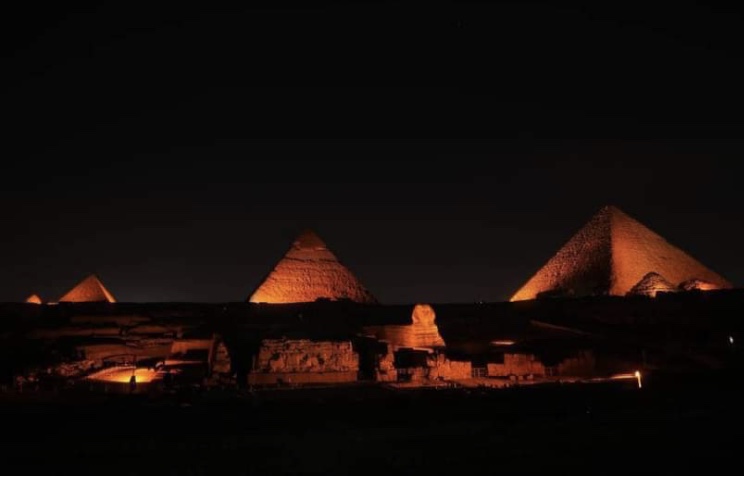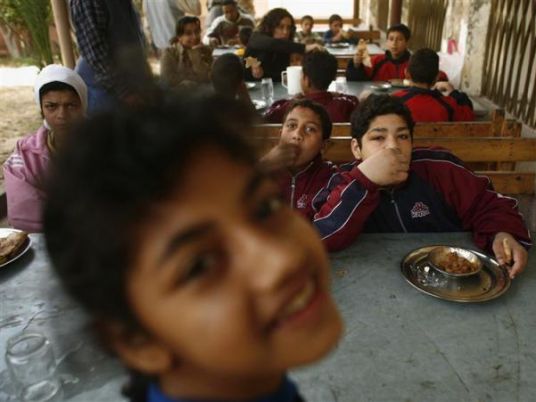Inside one of Cairo’s luxurious hotels, a group of Egypt’s most-followed “Twitterati” announced on Tuesday an innovative social media-based fundraising initiative: Tweetback.
The initiative, which uses the influence of prominent Twitter users to raise money for charity, collected more than LE1.3 million for a development project in Ezbet Khairallah, one of Cairo’s poorest neighborhoods.
Tweetback aims at utilizing the power of social media by calling on individuals and corporations, including major multinationals like Coca-Cola and Mobinil, to donate to selected NGOs and development projects in return for mentions from 20 of Egypt’s top Twitter users, who have a quarter of a million followers collectively.
Donors hope the promotion on prominent Twitter accounts will give them positive publicity and access. Twitter users are happy to use their digital soapboxes to advance a good cause.
“I supposedly have influence, why not use that?” said Mahmoud Salem, who initiated the project and goes by the moniker Sandmonkey on Twitter, where he has more than 45,000 followers.
“One of the revolution’s goals was human rights and in the midst of all that’s happening and the slowdown of the economy, many people were negatively affected and so we have to help them right away," Salem said. "We can’t ask them to wait until the revolution achieves all its goals."
Salem and the other Twitter users participating in the initiative have been actively employing their accounts since 25 January to write, advocate for and report on protests and political changes.
There are no accurate statistics on the number of Twitter users in Egypt, but many say there has been a noticeable hike in the number of users following the 18-day uprising, when it was used as a tool for activists to share information and update about protests and their location.
But only 33 percent of Egypt’s 80 million citizens use the internet, according to government statistics from the first quarter of 2011, raising questions about the efficacy of Twitter as a tool.
Donors are nonetheless enthusiastic about Tweetback.
“Why the whole initiative is so attractive to donors is that we managed to give them a product that combines their [corporate social responsibility] strategies with their digital marketing strategies,” said Rania Helmy, founder the public relations company Publicist Inc., which is handling PR for Tweetback. “The companies have realized the power of social media and the huge following that it attracted since the beginning of the revolution, which will provide them with good exposure.”
Not everyone on the microblogging site is happy with the project, though. The Tweetback hashtag on Twitter has triggered a heated debate among some equally notable users who doubt the success of such an initiative to affect genuine development. They are also suspicious of its funding by companies.
“Tweetback is against the core principle of the revolution, which is empowering people. People should not be dependent on aid because donations are not sustainable,” said Lilian Wagdy, who describes herself on her Twitter profile as a “citizen journalist.” Wagdy has more than 14,000 followers.
Tweetback’s first project aims to collect LE2 million for the Peace and Plenty Association, a nonprofit group that has been working on developing Ezbet Khairallah since 2004. In partnership with the government, Peace and Plenty will use the donated money to build a road that connects this rocky hill with its surroundings in order to facilitate the access of services and make it easier for its residents to commute to work.
Wagdy, however, believes that private NGOs shouldn’t shoulder government responsibilities during this period.
“Living a decent life is everybody’s right,” says Wagdy. “The government – not the people – has the responsibility to provide the infrastructure.”
“Corporations never do anything unconditionally for the benefit of the country. The whole event is a kind of publicity for them.”
Critics of “corporate social responsibility” have long argued that charity work from multinational corporations is more about public relations than genuine charity.
Other Twitter users raised concerns that telecom giant Mobinil, along with other mobile operators, cut services during the early days of the uprising.
Salem defends the project, stressing that it is “a sustainable development initiative and not just a charity.”
“We’ll provide the initial push and let the government maintain it. We can’t just keep waiting for the government to act when people are suffering,” said Salem.
Salem added that during the second phase of Tweetback, which will start in August, organizers hope to create a phone line through which individuals, not just corporations, can channel their donations.
Donors were given recognition awards during Tweetback’s launch event, but some companies, which donated LE424,000, wished to remain anonymous.
Coca-Cola, on the other hand, is not shy about its charity work.
“We are going to give them other support. We’ll do some other development over and above what they are planning to do,” said Ghada Makady, senior manager for public affairs and communication with Coca-Cola North and West Africa, which donated LE250,000.
“We made a promise and we are now showing them how corporations can make tomorrow better,” said Makady. “Twitter is a very powerful tool now for communication. It will have our message heard more, and it will also be a tool to gear volunteers to join forces with the company on its development projects.”




